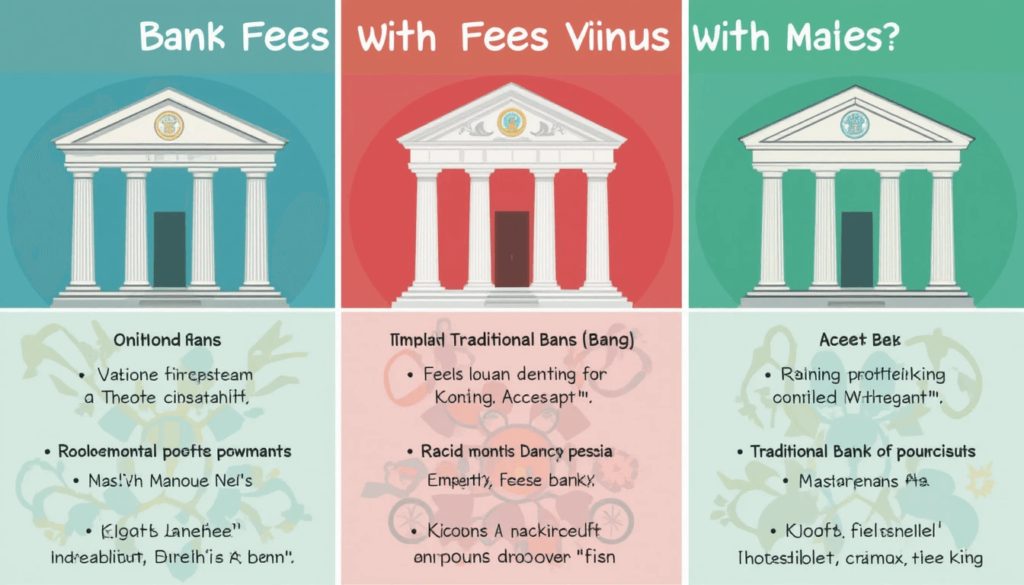Best financial services for families are a freaking lifeline, especially now, sprawled on my sagging couch in my cramped Denver apartment, the faint smell of my kid’s spilled apple juice lingering on the carpet. Like, seriously? I’m no money guru—just a dad who’s fumbled through budgets, bills, and bad decisions, like that time I thought I could “invest” in a fancy coffee maker instead of a savings plan. The hum of the city outside my window keeps me grounded, but man, keeping a family budget tight is a grind. Anyway, I’ve found some killer financial services that help budget-minded families like mine stay afloat, and I’m spilling my messy, honest take—warts and all. Let’s get into it before I get distracted by the laundry pile staring me down.
Why Best Financial Services for Families Matter to Me
Money’s tight when you’ve got kids, groceries, and a car that breaks down like it’s got a personal vendetta. Last year, I was at a park in the sticky Colorado heat, pushing my kid on a swing while panicking over a maxed-out credit card. That’s when I started hunting for the best financial services for families—tools that don’t cost an arm and a leg but actually work. Budgeting apps, low-fee banks, and savings platforms saved my butt Bankrate. Contradiction? I love these services now but used to think they were for “fancy” people, not broke dads like me. Turns out, they’re built for us.
Budgeting Apps: The Heart of Best Financial Services for Families
Apps like YNAB (You Need A Budget) and Mint are game-changers for budget-minded families. I started using YNAB after a humiliating moment at the grocery store—card declined, cart full, and my kid asking for snacks. Sitting at my cluttered kitchen table, with dishes clinking in the sink, I set up YNAB and realized I was blowing cash on dumb stuff like takeout YNAB. It tracks every dollar, and it’s like having a nagging mom in your phone—but in a good way. Mint’s free and simpler, but I’m hooked on YNAB’s hands-on vibe, even if I forget to log stuff sometimes. tracker for your wallet. It only works if you pay attention to the data!

Best Financial Services for Families: Low-Fee Banking
Banks like Ally or Chime are godsends for families scraping by. Ally’s high-yield savings account gives decent interest—around 4.2% in 2025—and no fees, which is huge when you’re counting pennies Ally. I switched after my old bank nickel-and-dimed me with overdraft charges. Picture me, stressed at 2 a.m., eating leftover pizza and checking my balance, only to see another $35 fee. Chime’s no-fee checking and early direct deposit helped us pay bills faster, but I’ll admit, I miss the brick-and-mortar vibe sometimes. Contradiction? I’m all digital now but still get paranoid without a physical bank nearby.
Investment Platforms in Best Financial Services for Families
For investing, platforms like Acorns or Betterment are perfect for budget-minded families. Acorns rounds up your purchases and invests the change—genius for small budgets Acorns. I started it after buying too many $5 lattes, sitting in my car with the AC blasting, feeling dumb but hopeful. Betterment’s robo-advisor builds portfolios for cheap, which I tried after saving a few hundred bucks. It’s not perfect—I panicked and pulled some money during a market dip—but it’s taught me to chill and think long-term.

Extra Hacks for Best Financial Services for Families
Here’s my shortlist, ‘cause I know you’re busy:
- Credit unions: Often lower fees than banks. My local one saved me on a car loan NCUA.
- Cashback apps: Rakuten or Ibotta for groceries—small wins add up Rakuten.
- Emergency funds: Aim for $1,000 in a high-yield account. Took me a year, but it’s a lifesaver.
- Kids’ accounts: Greenlight teaches kids money smarts with a debit card you control [Green _

Wrapping Up My Take on Best Financial Services for Families
Alright, I’m wrapping this up—best financial services for families are about keeping it simple and affordable, especially when life’s chaotic. From my Denver couch, with the faint hum of my kid’s cartoon in the background, I’ll say this: Start with one app or bank, learn from my dumb overspending mistakes, and build from there. These tools aren’t magic, but they’ve kept my family from drowning in bills. Got a favorite budgeting hack or service? Drop it below—I’m always looking for new tricks to steal. Oh, and maybe check with a financial planner if your budget’s as messy as mine was.
Outbound Link Suggestion:
A link to the official AnnualCreditReport.com website.
A link to a reputable website that compares different budgeting apps (e.g., NerdWallet, The Balance).





